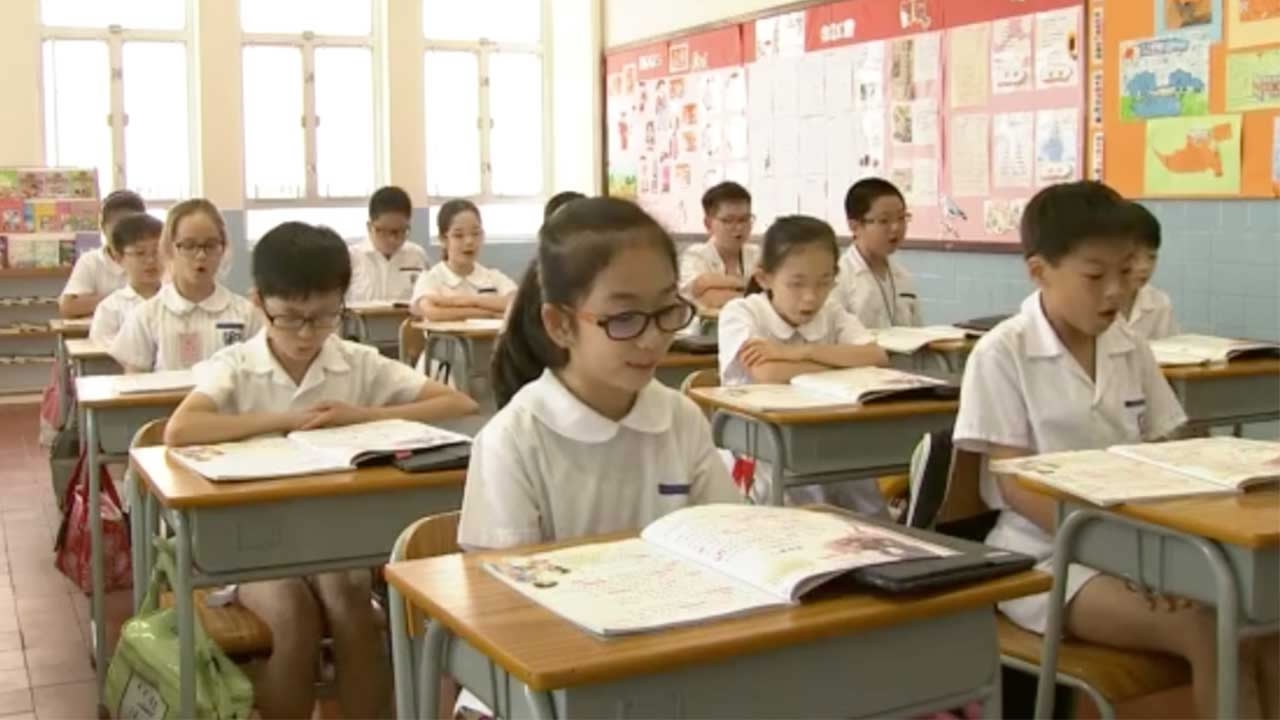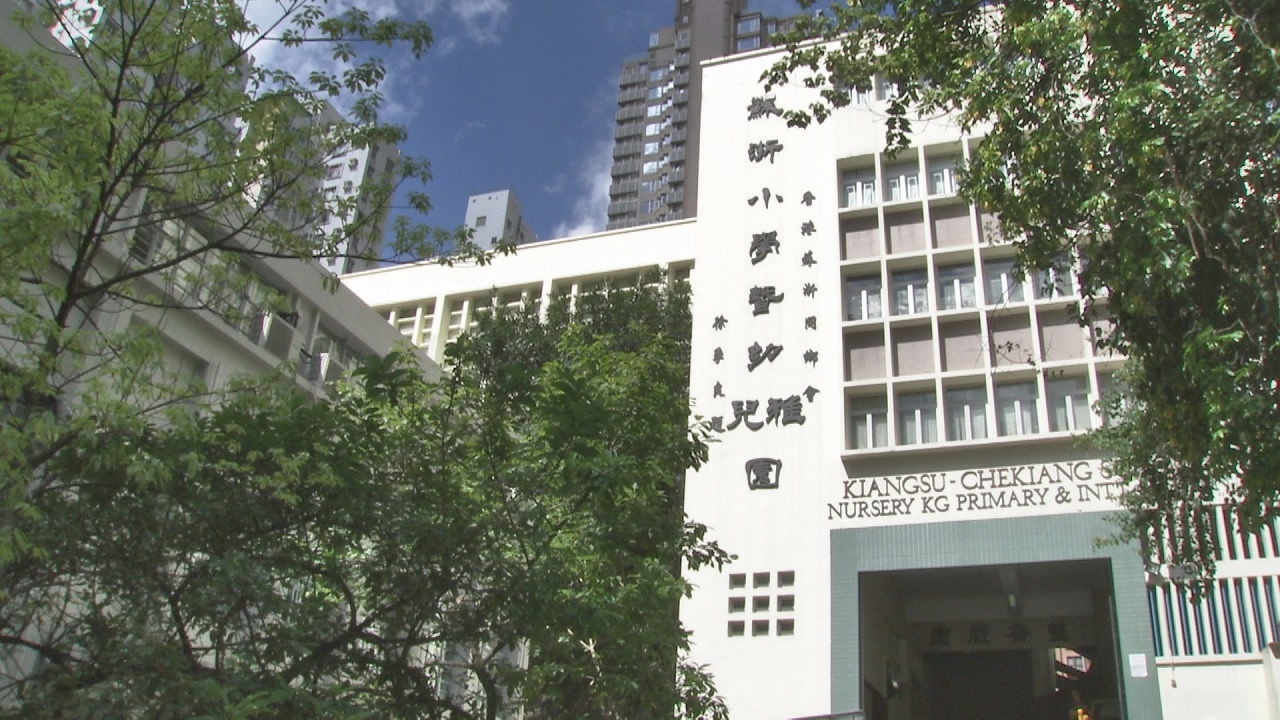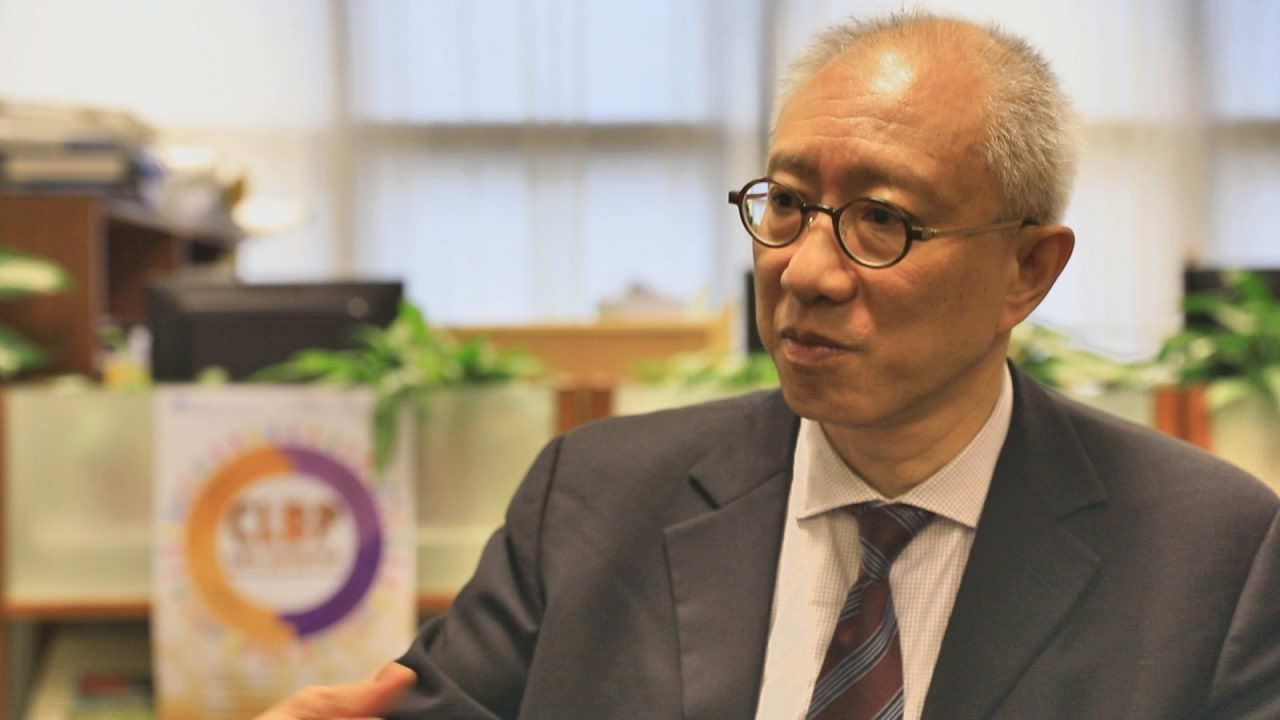
Culture & Sports
08:32, 02-Jul-2017
The growing popularity of learning Mandarin in Hong Kong

By CGTN’S Ge Yunfei
Language has always been an issue for tourists traveling to Hong Kong from mainland China. But it’s gradually becoming less of a problem as Putonghua, or Mandarin, has become more prevalent in this Cantonese-speaking region in recent years.
Many schools in Hong Kong are pushing forward trilingual education programs, including English, Cantonese and Mandarin.
20 years ago, Kiangsu-Chekiang Primary School was the only school that offered all of its courses in Mandarin. Principal Wong Po-ming said before the return of Hong Kong to China, their Mandarin education policy encountered lots of difficulties in Hong Kong.

Kiangsu-Chekiang Primay School. /CGTN Photo
Kiangsu-Chekiang Primay School. /CGTN Photo
Wang Wanhui came to Hong Kong from the mainland 27 years ago to teach standard Mandarin. She said back then everything was different.
"When I came to Hong Kong in 1990, only a few people here spoke Putonghua, and speaking Putonghua would make you feel left out," she told CGTN.
Wang said most parents now urge their children to learn Mandarin, with students' Putonghua levels improving because society and parents are paying much more attention to this language. As a result, schools that offer a Mandarin syllabus can attract more local students.
A four-year Mandarin course was established at Hong Kong University of Science and Technology in 2012, and every single student has to earn three Mandarin learning credits before they graduate.
Dr. Keith Tong, director of the Center of Language Education of Hong Kong University of Science and Technology, said there is a pragmatic reason behind this change.

Dr. Keith Tong, director of the Center of Language Education of Hong Kong University of Science and Technology. /CGTN Photo
Dr. Keith Tong, director of the Center of Language Education of Hong Kong University of Science and Technology. /CGTN Photo
“20 years down the road, if we can teach our students to speak Putonghua fluently and accurately, then they will be more competitive, even when they look for jobs in Shanghai and Beijing.”
But some people have expressed concern that Mandarin might begin to challenge the position of Cantonese or English in Hong Kong.
20 years ago, a Danish reporter asked Dr. Tong if Putonghua would replace English as the dominant language in Hong Kong. He said that's not the way language works.
“The answer is no. Language use doesn't happen just like that," said Tong. "Language use is decided by the people of a society. Cantonese, English and Putonghua will all remain important because each of them has a role to play in society.”
Dr. Tong added that the growing prevalence of Mandarin in Hong Kong is simply the result of the city's growing ties with the mainland.
1972km

SITEMAP
Copyright © 2018 CGTN. Beijing ICP prepared NO.16065310-3
Copyright © 2018 CGTN. Beijing ICP prepared NO.16065310-3